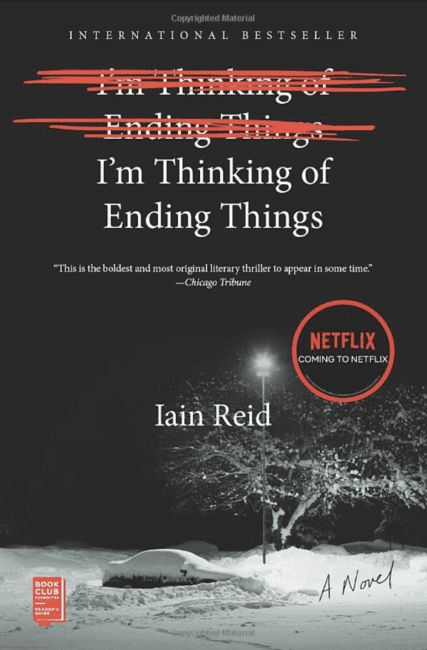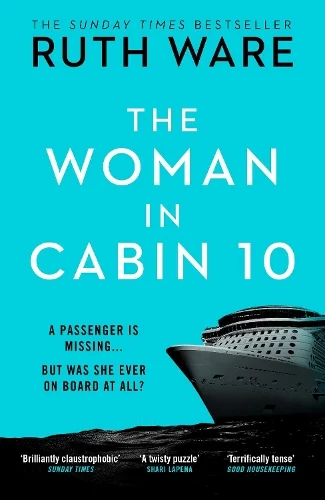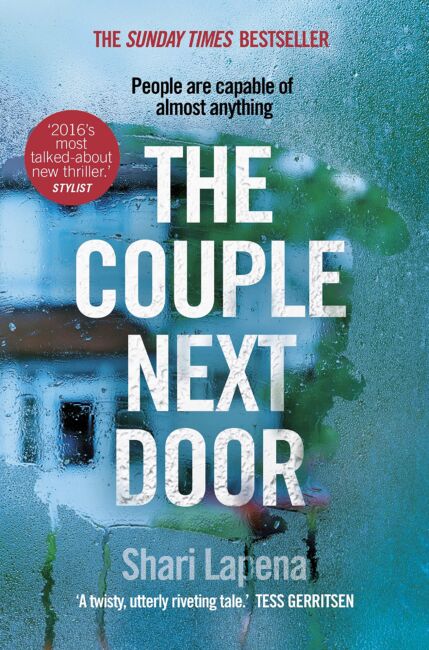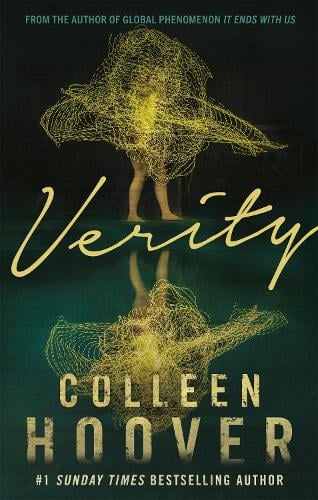I’m Thinking of Ending Things
Iain Reed
We won’t give you a rundown of the narrative — it’s a short one, so we’ll just give you our thoughts.
Reed’s debut novel, I’m Thinking of Ending Things, is an accomplished, gripping, and thoughtful read if it’s the first book you’ve ever read. On the one hand, Reed’s somehow convinced scores of readers that this is a masterpiece. On the other, it’s perhaps telling that the majority of them appear to be children or early teens with a budding interest in “thinking” fiction.
We’re almost ashamed to say we read to the end hoping for a great a-ha! moment – a sort of demystifying climax that would make it clear the last 200-or-so pages were a surprisingly clever joke rather than self-indulgent writing. Instead, we’re left with an ending that was predicted from page two.
What’s more mystifying than the heavy-handed narrative is the fact that Charlie Kaufman (whose Being John Malkovic is a masterclass in oddball narrative) was compelled to adapt this for cinema – with an equally disappointing result despite the stellar performances & cinematography. You, er, can’t polish a…
Most frustratingly, the novel comes so close to the possibility of saying interesting things – but never makes the jump.
“This is a deliciously frightening novel, Reid has a light, idiosyncratic touch but never lets his vice-like grip of suspense slacken for a second.”
- Janette Wolf
The problem here is that this novel genuinely is a reasonable first foray into fiction that attempts deeper enquiry – the narration style, time shifting, and metafictional elements all offer the chance to go further. But everything it tries to explore has been done, and better, at least half a century ago. Heck, Robert Louis Stevenson was having fun with unreliable narrators in 1886.
Perhaps, then, this is the crux of the issue: what should have been presented as teen fiction has been thrown into the world as Fiction – and the result is reading something that feels like an AI assimilation of Thoughtful Writing.
Janette Wolf’s assessment, quoted above, gives a glimpse as to why we feel the novel fell flat – the fact that the “suspense [doesn’t] slacken for a second”.
The narrative spends time actively mystifying for the purpose of obscuration, not in order to create the setting for genuine emotional connection (and therefore thoughtful reflection). Something isn’t mysterious – or at least interestingly so – just because you’ve made it unclear or have made veiled symbolic references to it.
For something to be suspenseful, to be terrifying, to really make your eyes pop out, it needs to have the ebb and flow of threat – not the omnipresence of it.
You need to have someone to root for and have a reason to care for them. But by using so many clunky shorthands for “be afraid” – pathetic fallacy, shifting narration, a road trip to somewhere unknown, undecidedness about a new partner, haphazard ominous statements from the future – the narrative doesn’t allow for the possibility of being scared.
In other words, by spending so much time telling you what to think and how you should feel, the novel doesn’t provide the space in order to actually have that desired reaction.
In other other words, if everything is fearful, nothing is.
—
If you’re an avid reader, you’re likely to be dissatisfied here.

| ISBN | 978-1911231363 |
|---|---|
| Pages | 208 |



